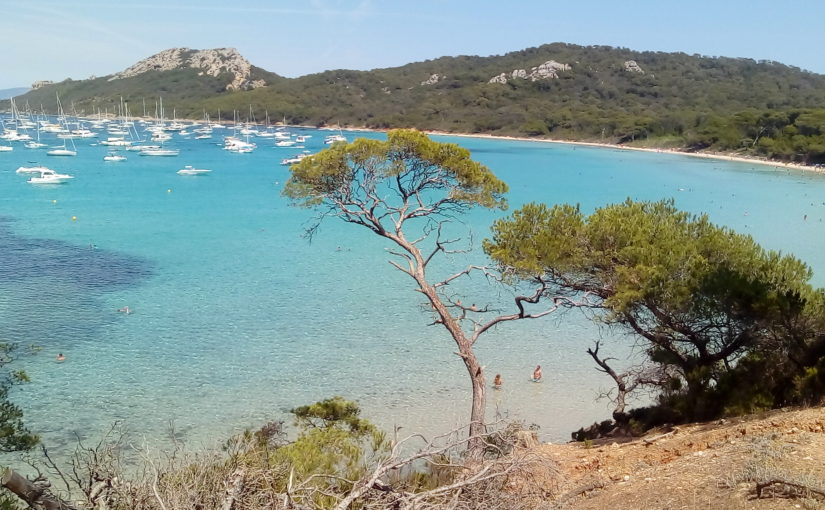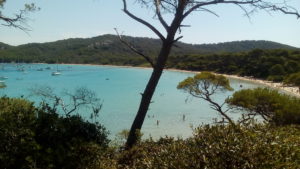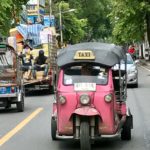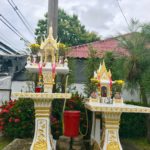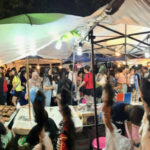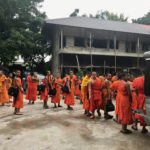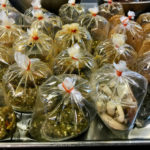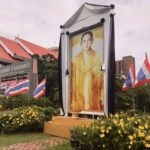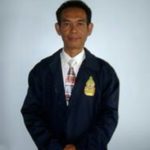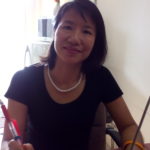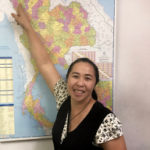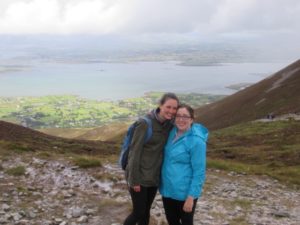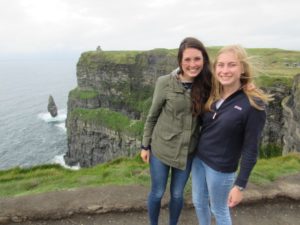Learning a language is hard, takes guts, and takes conscience efforts every minute of the day. I would go to bed absolutely exhausted with my head spinning at the end of the day but gradually found that the original confusion of constantly translating turned into intuitively understanding and responding in Spanish. One of the largest challenges for me, that I anticipated in my pre-program blog posts, was the intimidation of speaking to native speakers. Especially in a city that receives such heavy traffic from foreigners because of tourism, I was worried that my attempts to speak Spanish would be scoffed at. However, I found that people of Barcelona to be very warm and appreciative. On one occasion our waiter at a restaurant actually commented how wonderful it was that an English speaker was making efforts to practice Spanish and even help correct some of my grammar and vocabulary. Overall my fluency greatly improved in part due to the fact that I was receiving formal instruction in class side by side with my own experiential learning every day. Because of this I was able to put the new grammatical structures, colloquial phrases, and vocabulary that I was learning to use in daily conversations
One of the largest impediments to my language acquisition was my fellow american students. I spoke Spanish during my daily classes, in shops, restaurants, taxis, while shopping and with my host family, but when I would spend time exploring the city or on weekend excursions with my American friends, as much as we intended to speak Spanish, we always ended up reverting back to English because it is our shared first language. This constant flipping of Spanish and English possibly held me back from making even more strides towards fluency. To someone who is considering applying for an SLA program, I would recommend finding a program where you are living alone with a host family or with other international students rather than being surrounded by like-minded Americans.
In addition to the development of my language skills, I also deepened my understanding of how to interact with and live within another culture. In order to engage and understand cultural differences I first needed to form relationships. Although you can learn much through observation I found that my true cultural understanding came from conversation built on trust and mutual respect. In order to engage sometimes fragile or loaded cultural topics, I first had to build relationships with my host family, teachers, the local coffee shop owner, museum tour guides, etc on different levels. By approaching their culture from a humble human level rather than as an american comparing a “superior” culture to “inferior” one, the natives could sense my legitimate interest in learning and understanding and responded positively to that.
This experience definitely opened up my eyes to the importance of learning language. In the United States there is not a necessity to speak another language in order to communicate, get a good job, be successful, etc. However, by being monolingual we limit ourselves so much. A simple example: In my art and architecture class we covered the work of Antoni Gaudi in depth. One of his most famous techniques is called “trencadis” in Catalan, however because this artistic technique is unique to the region of Catalan, the word does not translate. Because I do not speak Catalan I could understand what this technique was in theory but never fully capture the meaning, essence, and etymology of the word.
On a larger scale, by limiting myself to just English I would never have gotten to meet and know my namesake, Fabiola, on a deeper level. I never would have formed relationships with my spanish host family. I would miss out on friendships and life-shaping experiences because of an inability to communicate.
This experience shifted my worldview from a very american-centric view to a broader more global view. It is important that we make ourselves a bit more humble and attempt to learn and appreciate other languages and cultures rather than imposing English on those we encounter.
I hope to use my Spanish abilities to volunteer in South Bend on a weekly basis with the local latino population, excel in my Spanish literature classes, and connect with and understand the stories of immigrants as I travel to the US-Mexico border this winter with a CSC seminar. This experience has solidified foreign language as an essential and central aspect of my academic pursuits. I will now be able to engage Spanish literature, political problems, and current news in Spanish rather than in translation. It has also given me the inspiration to begin learning Arabic in order to more deeply studying the middle east as well as the complex relations between Spain and Morocco.
From a personal perspective, the SLA grant helped me to engage with family friends who I otherwise would lack relationships with. During my time in Spain I was able to connect with my mother’s friends, mentors, and hosts who were so important in the formation of her identity when she spent several years abroad, and now also mine own.
To anyone that is considering applying for an SLA grant, there is no reason to not do it. The best way to learn a language is through immersion. You get to constantly practice, begin to pick up patterns, watch yourself because more functional and independent, and make noticeable improvements every day. Foreign countries need to see more engaged and passionate students who have a genuine interest in language and culture in order to counter growing anti-americanism. Whatever your level, being immersed in a language will help you make incredible strides and being able to communicate and understand linguistic nuisance to better connect a culture and its people is invaluable.
Thank you so much to the Center for the Study of Languages and Cultures and the Summer Language Abroad Grant program for continuing to provide incredible opportunities for students linguistic, academic, and personal growth.


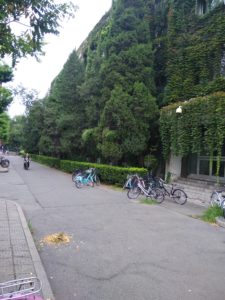
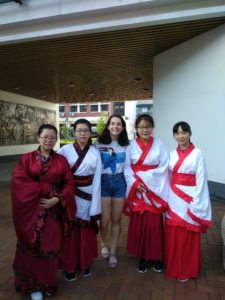
 One day, I was taking the bus with two friends to go from Beihai Park to Sanlitun, the modern, business district. The bus is very convenient, when there is not too much traffic, which is not a common occurrence in Beijing. It is often pretty crowded and a little slow but when you have the time, it is an easy way to watch the Beijing landscape. That day, we struggled to find the bus stop; it was hidden further away than Maps indicated. We finally got on the bus. It wasn’t too crowded that day. We were standing on the bus, talking in our broken Chinese, as we would usually do. After a couple minutes, we felt the stare of an elder man, sitting in the seat next to us.
One day, I was taking the bus with two friends to go from Beihai Park to Sanlitun, the modern, business district. The bus is very convenient, when there is not too much traffic, which is not a common occurrence in Beijing. It is often pretty crowded and a little slow but when you have the time, it is an easy way to watch the Beijing landscape. That day, we struggled to find the bus stop; it was hidden further away than Maps indicated. We finally got on the bus. It wasn’t too crowded that day. We were standing on the bus, talking in our broken Chinese, as we would usually do. After a couple minutes, we felt the stare of an elder man, sitting in the seat next to us.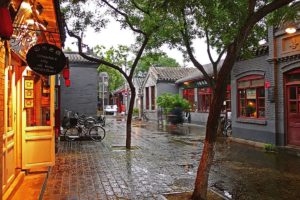
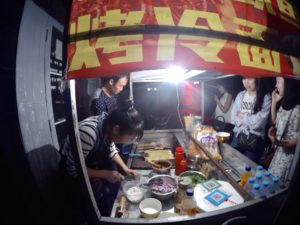
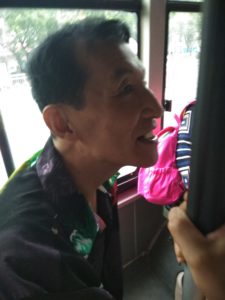



 Though I enjoyed the parade and the sunny weather, I realized
Though I enjoyed the parade and the sunny weather, I realized